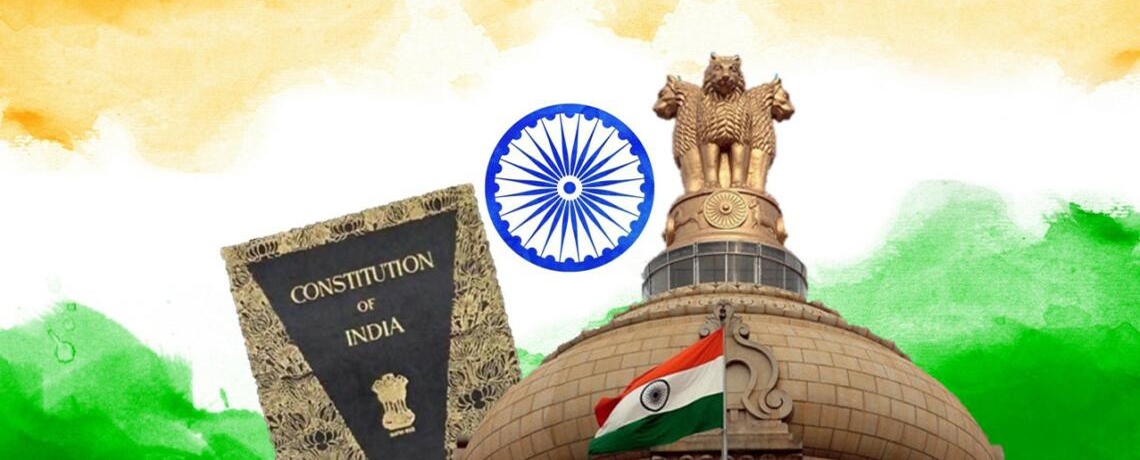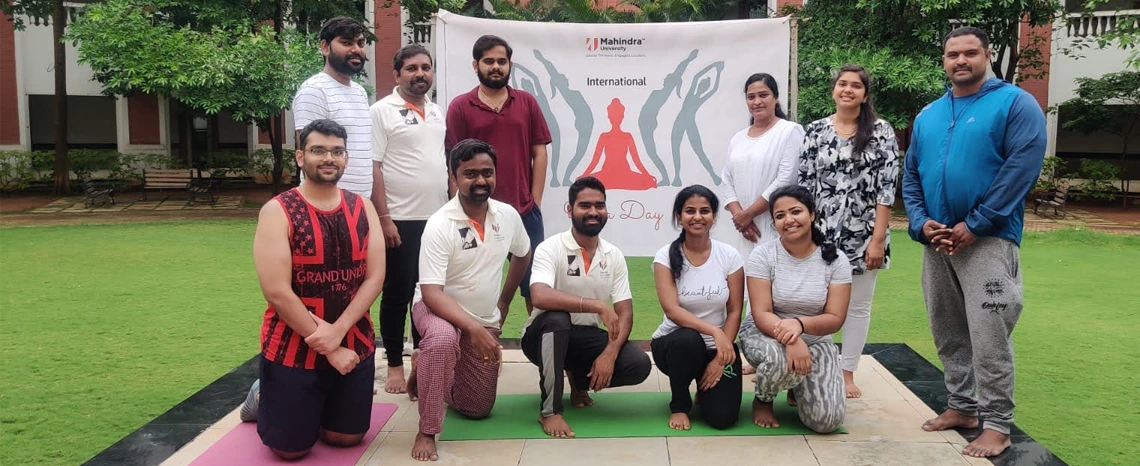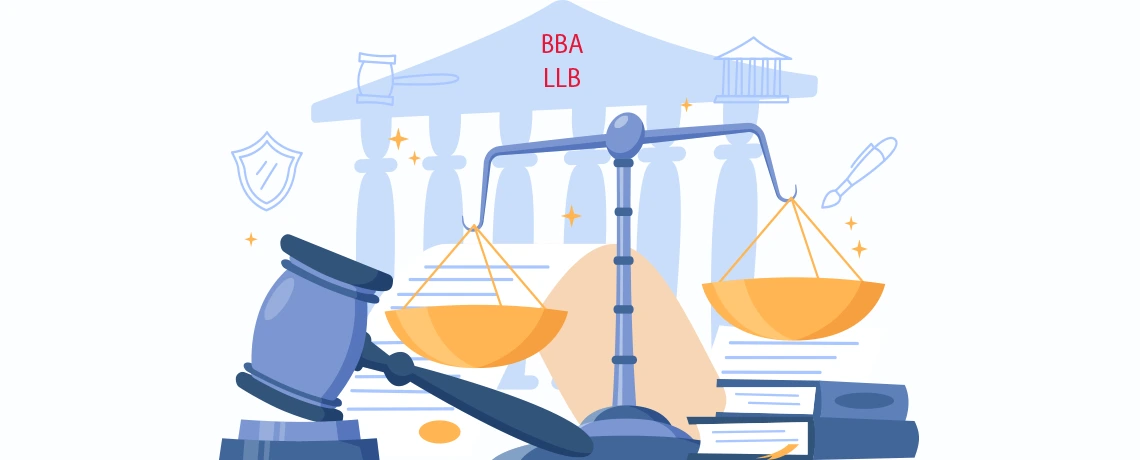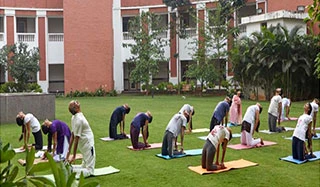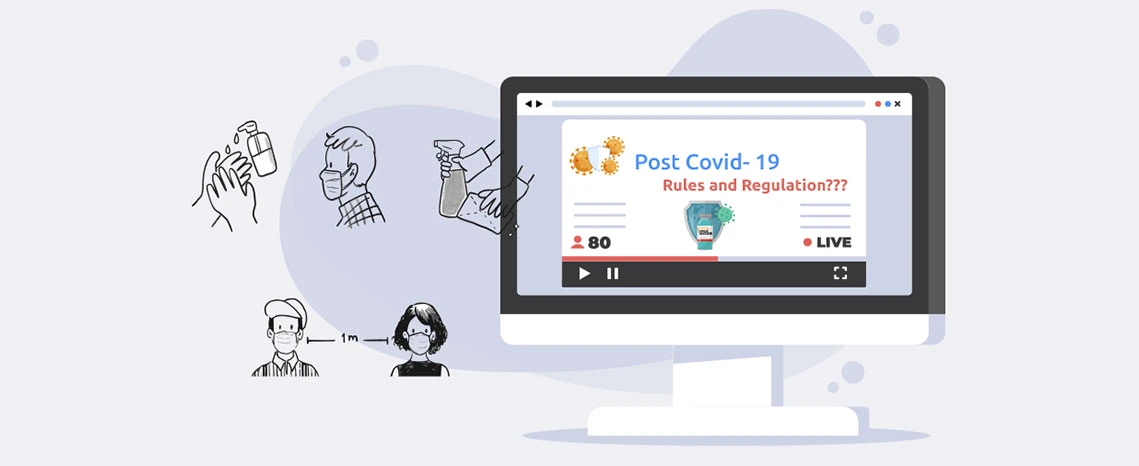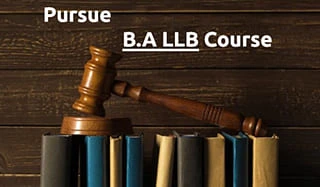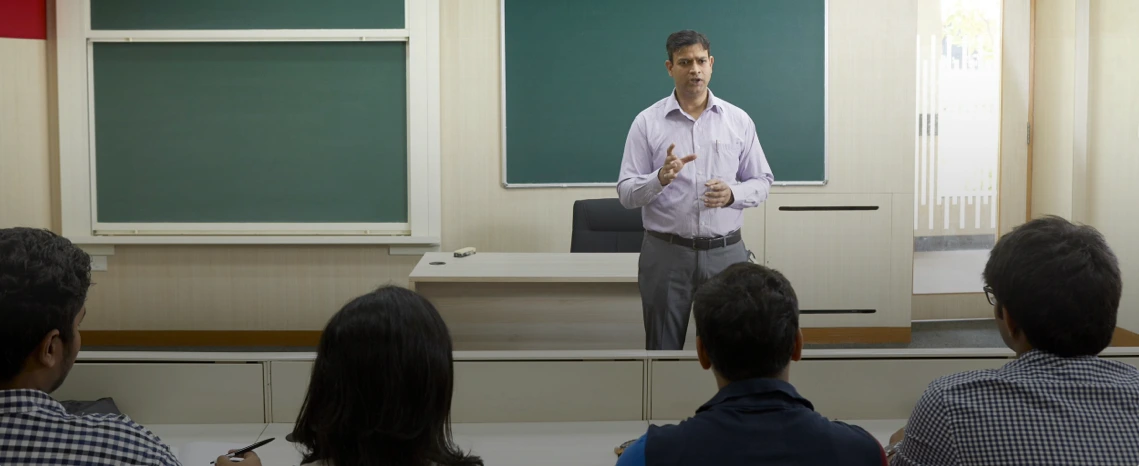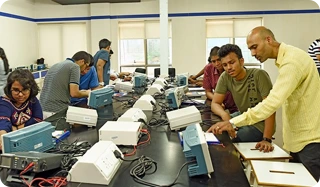B.A. LL.B. Syllabus: What You’ll Study in the Course

Law isn’t just about statutes and courtrooms—it’s the invisible thread that weaves fairness into the fabric of society. Whether it’s defending civil liberties, drafting policies that shape nations, or resolving disputes in boardrooms, legal insight influences countless aspects of our daily lives. In a world marked by complex social issues, global challenges, and rapid policy shifts, understanding the rule of law is more vital than ever.
Now, imagine combining this legal acumen with a strong grasp of humanities—politics, sociology, history, and philosophy. That’s the power of a multidisciplinary education. If you’ve ever found yourself passionately debating social issues, intrigued by how laws are made, or inspired to be a voice for change, you’re already halfway there.
Curious where to start? Diving into the B.A. LL.B. syllabus, career potential, and course structure is your first step toward a future where your words and wisdom can truly shape the world. Let’s begin.
B.A. LL.B. Full Form
The acronym B.A. LL.B. represents the undergraduate program known as Bachelor of Arts and Bachelor of Laws. The dual-degree undergraduate program merges basic law education with humanities studies through a single program.
What is B.A. LL.B.?
The B.A. LL.B. course provides a five-year integrated professional education sequence for individuals who want to become lawyers directly after high school. It blends subjects like Sociology, Political science, and History with Constitutional Law, Criminal Law, Contract Law, and more. The combined approach of this program helps students understand legal frameworks alongside the social and political dynamics within which they function.
Why Choose B.A. LL.B.?
The B.A. LL.B. course entails more than studying law because it provides an extensive learning experience which unites legal education with liberal arts foundations for personal growth. Students who enroll in this integrated program receive a broad range of skills which prepare them to create meaningful change in their professional life.
Here’s why choosing a B.A. LL.B. can be a game-changer:
- Early Exposure to Legal Studies After 12th Grade
The B.A. LL.B. program provides high school graduates the chance to immediately begin their law education compared to traditional law degrees, which start after completing undergraduate studies. The five-year integrated B.A. LL.B. program provides time efficiency alongside advanced preparation in developing a legal career. - Balanced Curriculum with Humanities and Law
The educational framework integrates Political Science with Sociology, History, economics, and core law subjects for students. The combination of legal and social subjects in the program develops advanced critical thinking abilities together with stronger social comprehension and strong legal interpretation abilities. - Strong Foundation for Civil Services and Judiciary Exams
A B.A. LL.B. education provides crucial benefits for students who intend to pass UPSC and State Judiciary exams, as well as other administrative service assessments, because of its multidisciplinary curriculum structure. Law students who study humanities develop strong analytical capabilities and gain advanced worldview understanding. - Diverse Career Opportunities Across Sectors
Graduates hold options to pursue different professional paths after graduation including employment with elite law firms, corporate in-house advisory roles, public service work for government agencies, non-profit organisations, or governmental political positions. - Clear Pathway for Higher Studies and Research
The program serves as a solid platform for those who wish to pursue an LL.M., explore international legal studies, apply for judicial clerkships, or delve into academic research in law and related fields.
B.A. LL.B. Syllabus
The B.A. LL.B. syllabus is structured to gradually introduce you to legal principles while strengthening your grounding in the arts. Here’s a brief overview:
1st Year
| 1st Semester | 2nd Semester |
|---|---|
| Introduction to law | Law of contract-I |
| Legal Method | Sociology-II |
| Political Science-I | Political Science-II |
| Criminal law | Law of Tort-I |
| History-I | History-II |
| Constitutional law | Economics-II |
| Sociology-I | General English-II |
| Economics-I | Jurisprudence |
| English-I |
2nd Year
| 3rd Semester | 4th Semester |
|---|---|
| Law of contract-II | Legal research |
| Sociology-III | Family law-II |
| Political Science-III | Labour law-I |
| Criminal law-I | Constitutional law-II |
| Constitutional law-I | Jurisprudence |
| Administrative law | Environmental law |
| Family law-I | Property law |
3rd Year
| 5th Semester | 6th Semester |
|---|---|
| Jurisprudence | Tort law |
| Criminal law-I | Criminal law-II |
| Corporate law-I | Human rights |
| Law of evidence | Code of Civil Procedure |
| Public international law | Corporate law-II |
| Administrative law | Intellectual property law |
4th Year
| 7th Semester | 8th Semester |
|---|---|
| Labour law-II | Taxation-II |
| Environmental law-II | Intellectual property law |
| Taxation-I | Optional Paper-III |
| Drafting, Pleading and Conveyancing | Optional Paper-IV |
| Optional Paper-I | Professional Ethics |
| Optional Paper-II |
5th Year
| 9th Semester | 10th Semester |
|---|---|
| Merger, Acquisition and Competition Laws | International Trade Law |
| Private International Law | Moot courts |
| Electives | Law of Equity, Trusts, Suit Evaluation and Registration |
| Optional Paper-V | Advanced law subjects |
| Optional Paper-VI | Seminar paper |
B.A. LL.B. Subjects
Students in this course study a variety of B.A. LL.B. subjects, such as:
| Subject | Description | Relevance |
|---|---|---|
| Constitutional Law | Covers the structure, functions, and principles of the Indian Constitution. | Forms the backbone of Indian legal and political systems. |
| Law of Torts | Deals with civil wrongs, liability, and remedies available under tort law. | Essential for understanding legal rights in civil disputes. |
| Jurisprudence | Introduces legal philosophy, theories of law, and the nature of justice. | Builds foundational knowledge about the essence and purpose of law. |
| Administrative Law | Focuses on the legal framework of public administration and government authority. | Crucial for aspiring civil servants and legal advisors. |
| Indian Penal Code (IPC) | Detailed study of crimes, punishments, and criminal liability in India. | Vital for careers in criminal law, litigation, and judiciary. |
| Public International Law | Explores laws governing relationships between nations, treaties, and global legal norms. | Important for those interested in diplomacy, global governance, and UN roles. |
| Human Rights Law | Deals with national and international human rights standards and enforcement mechanisms. | Ideal for roles in NGOs, activism, and international law. |
| Labour Law | Covers employment laws, workers’ rights, and dispute resolution mechanisms. | Useful for working in corporate legal departments and labor law firms. |
B.A. LL.B. Specialisations
Most universities allow you to choose between core compulsory subjects together with electives and specialisation courses. These focused areas of law allow you to align your academic interests with specific career paths and emerging legal trends:
- Corporate & Commercial Law
- Focuses on company law, mergers and acquisitions, corporate finance, and commercial contracts.
- Prepares you for roles in corporate legal teams, law firms, financial institutions, and regulatory bodies.
- Cyber Law & Data Privacy
- Deals with legal issues in the digital domain, including cybercrime, online transactions, and data protection regulations.
- Ideal for careers in tech companies, cybersecurity consulting, and digital policy advocacy.
- Environmental Law
- Covers legislation related to environmental protection, climate change, sustainable development, and ecological conservation.
- Equips you for roles in environmental NGOs, policy-making bodies, and international organisations focused on sustainability.
- Intellectual Property Law
- Focuses on copyright, trademarks, patents, and design rights.
- Perfect for aspirants interested in media, technology, entertainment, innovation, and research-intensive industries.
- Criminal Law
- Explores the principles of criminal liability, procedures, and justice delivery systems.
- Prepares you for litigation, public prosecution, judicial services, and defense law careers.
- International Law
- Involves studying laws that govern relationships between nations, treaties, international human rights, and global dispute resolution.
- Opens opportunities in diplomacy, international courts, intergovernmental organisations, and humanitarian law.
B.A. LL.B. Eligibility Criteria
To be eligible, candidates must:
- Have completed 10+2 from a recognised board
- Score at least 45–50% aggregate marks (varies by institution)
- Qualify in entrance exams as specified by the university
B.A. LL.B. Entrance Exams
Admission is usually through national or university-level entrance tests such as:
- CLAT (Common Law Admission Test)
- MULET (Mahindra University Law Entrance Test)
- LSAT India (Law School Admission Test)
- AILET (All India Law Entrance Test)
- CUET (for central universities)
- Internal entrance exams by private universities
B.A. LL.B. Admission Process
The B.A. LL.B. admission process is designed to assess a candidate’s academic potential, aptitude for legal studies, and readiness for an intensive interdisciplinary program. Institutions typically follow these steps:
| Step | Description |
|---|---|
| 1 | Fill the application form online/offline |
| 2 | Appear for the required entrance exam |
| 3 | Attend personal interview or counseling (if applicable) |
| 4 | Final selection based on merit |
| 5 | Submit documents and pay the fees |
B.A. LL.B. Duration
The B.A. LL.B. course spans 5 years, divided into 10 semesters, with internships and practical training embedded into the program.
B.A. LL.B. Fees
The B.A. LL.B. fees vary depending on the type of institution:
| Type of Institution | Average Annual Fees |
|---|---|
| Government Colleges | INR 20,000 – 80,000 |
| Private Colleges | INR 1,50,000 – 3,00,000 |
| Premier Law Schools | INR 2,00,000 – 4,00,000 |
Career Opportunities After a B.A. LL.B.
Graduates of this program can explore career paths such as:
| Career Path | Description |
|---|---|
| Advocate or Legal Advisor | Represent clients in court, offer legal counsel, and draft legal documents. |
| Corporate Lawyer | Handle legal matters for businesses, including compliance, mergers, and contracts. |
| Judicial Services (Judge, Magistrate) | Serve in the judiciary after clearing state or national-level judicial exams. |
| Legal Analyst | Conduct legal research, draft summaries, and support senior legal professionals. |
| Public Prosecutor | Represent the state in criminal cases and prosecute offenders in court. |
| Civil Services (IAS, IPS, IRS) | Enter administrative services through UPSC exams, often with legal specialisation. |
| Legal Journalist | Cover legal developments, court proceedings, and write law-related news articles. |
| Human Rights Officer | Work with NGOs or international bodies to investigate and promote human rights. |
B.A. LL.B. Salary
Starting salaries vary based on the sector and location:
| Role | Average Starting Salary |
|---|---|
| Advocate / Legal Advisor | INR 3–6 LPA |
| Corporate Lawyer | INR 6–10 LPA |
| Judicial Services (Judge, Magistrate) | INR 7–12 LPA (after clearing exams) |
| Legal Analyst | INR 4–7 LPA |
| Public Prosecutor | INR 5–8 LPA (govt. pay scales apply) |
| Civil Services (IAS, IPS, IRS) | INR 8–12 LPA (as per pay grade) |
| Legal Journalist | INR 3–6 LPA |
| Human Rights Officer | INR 4–7 LPA |
Top Recruiting Industries After B.A. LL.B. Course
B.A. LL.B. graduates are sought after in various industries, such as:
- Law Firms
- Corporate Houses
- Government and Public Sector
- Non-Governmental Organisations
- International Organisations
- Legal Process Outsourcing Firms
Top Recruiting Companies in India After B.A. LL.B. Course
While the list of companies recruiting B.A. LL.B. graduates is vast, below mentioned are some of the top recruiting companies:
- Reliance Industries
- Tata Group
- Aditya Birla Group
- Infosys
- Shardul Amarchand Mangaldas & Co.
- AZB & Partners
- Khaitan & Co.
- Government Ministries
- United Nations
- Amnesty International
- World Bank
- Cyril Amarchand Mangaldas
- Public sector banks
- Law Commissions
Crafting Changemakers in Law: Discover B.A. LL.B. (Hons.) @ Mahindra University
Mahindra University provides an in-depth B.A. LL.B. (Hons.) program under its School of Law. This undergraduate course takes a multi-disciplinary approach, addressing the diverse demands of the legal profession—ranging from litigation, judiciary roles, and academia to corporate legal advising, immigration law, international law (public and private), and policy-making. Alongside core law subjects, you also study liberal arts disciplines such as English, History, Sociology, Political Science, and Law & Economics. The integrated curriculum also builds a solid foundation for those aspiring to pursue a career in the Indian Administrative Services (IAS).
Mahindra University’s Vision for Upcoming Law Professionals
- Develop versatile leaders who can think critically and creatively and are dedicated to fostering inclusive and sustainable development.
- Strive for academic excellence across disciplines by blending science and technology education with liberal arts, encompassing humanities, ethics, philosophy, and design thinking.
- Combine theoretical learning with practical experience through entrepreneurial initiatives aimed at addressing complex societal issues.
- A globally experienced faculty with strong industry-academic credentials and a focus on research ensures that the curriculum stays relevant, continually adapts, and aligns with international business and industry standards.
B.A. LL.B. (Hons.) Fees at Mahindra University
| Academic fees | INR 4,00,000 per annum |
|---|---|
| Hostel charges | INR 2,10,000 per annum |
| Caution deposit, which is refundable at the end of study and graduation | INR 20,000 |
Additionally, you must note that hostel stay is not compulsory for students of B.A., LL.B. (Hons.) course and all fees are liable to change annually.
Final Thoughts
Law isn’t just about memorising statutes—it’s about shaping lives, communities, and nations. Whether you’re drawn by a passion for justice or the allure of a dynamic career, understanding the B.A. LL.B. syllabus, its career scope, and the B.A. LL.B. course structure is the first step toward your legal dreams. Curious about where your legal journey can take you? Whether you see yourself in a courtroom, corporate boardroom, or policy think tank, the right foundation can make all the difference. Take the next step with Mahindra University—where world-class education meets real-world impact.
FAQs
Q1. What is the difference between B.A. LL.B. and LL.B.?
Students who determine law studies following their 12th graduation should take the five-year B.A. LL.B. program, while students interested in a three-year program must choose LL.B.
Q2. What are some important B.A. LL.B. subjects in the syllabus?
Multiple vital subjects must be prioritised by aspiring lawyers who wish to succeed in their profession. The fundamental subjects for legal success consist of constitutional law and torts along with contracts, criminal law, and jurisprudence.
Q3. Is CLAT mandatory for B.A. LL.B. admission?
The B.A. LL.B. admission process in private universities requires entrance exams in addition to the relevant CLAT examination since CLAT stands as one of the most important tests.
Q4. What is the average B.A. LL.B. fees structure?
The fees for a B.A. LL.B. depends on your choice of institution, quotas, and several other factors. However, it generally ranges from INR 20,000 in government colleges to INR 4,00,000 per year in top private institutions.





































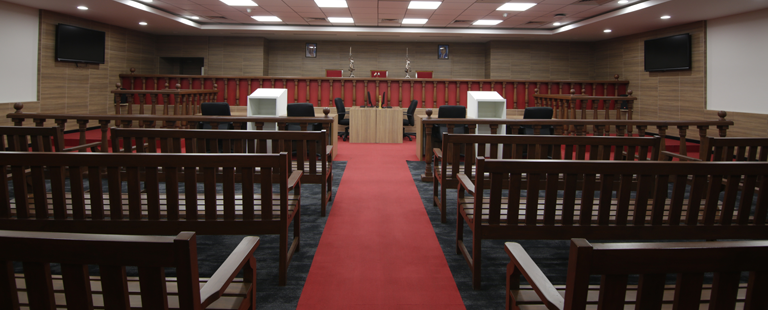








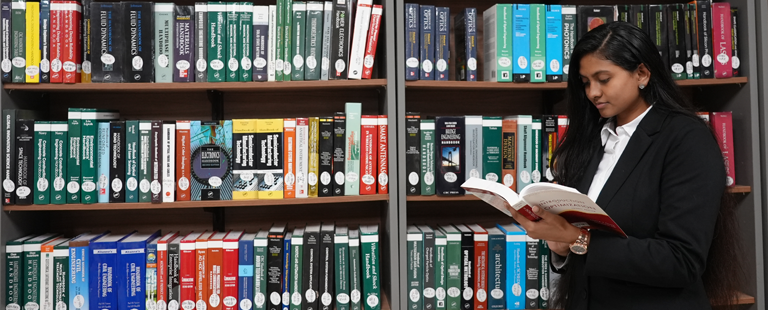






















































































































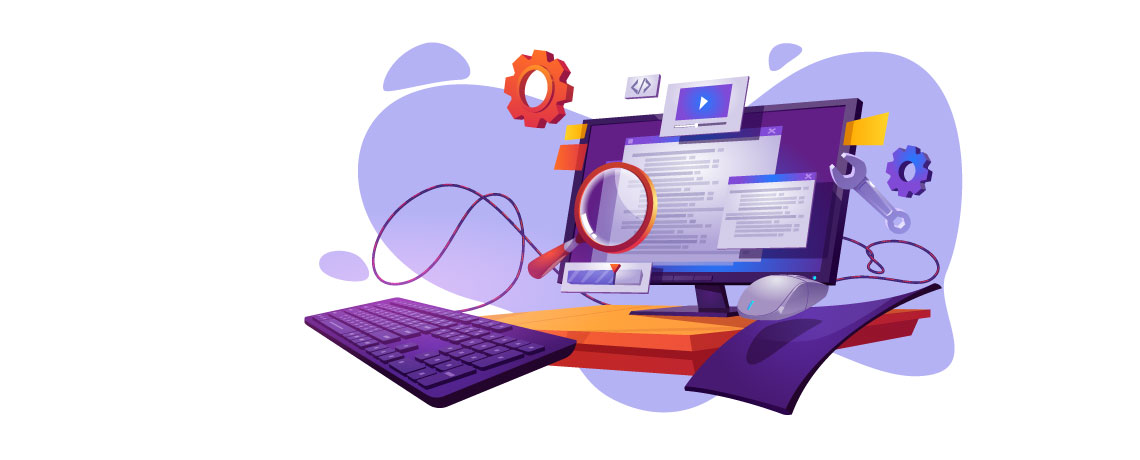







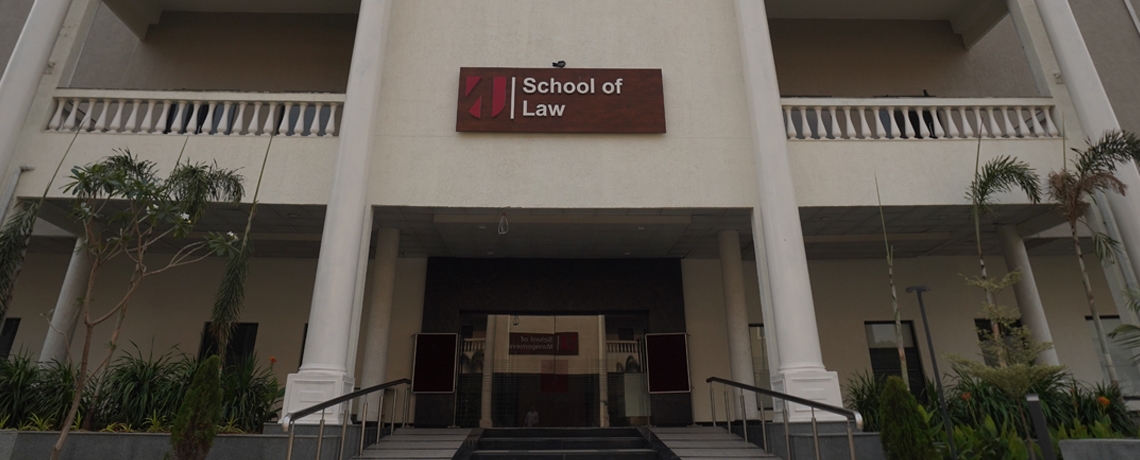

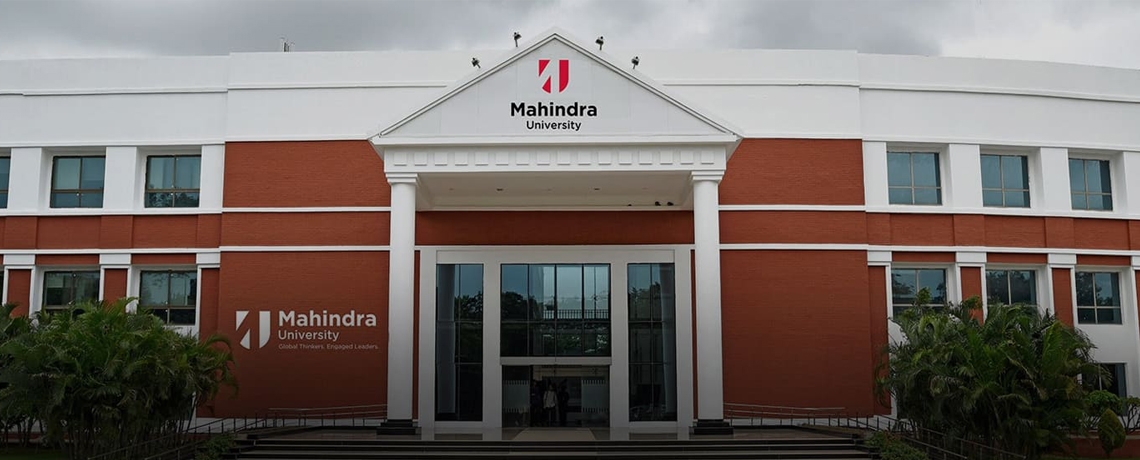
![Arm_Yourself_with_Deep_Business_Knowledge_&_Insights_with_PhD_Program_in_Business_Administration_at_Mahindra_University[1] Arm_Yourself_with_Deep_Business_Knowledge_&_Insights_with_PhD_Program_in_Business_Administration_at_Mahindra_University[1]](https://www.mahindrauniversity.edu.in/wp-content/uploads/2023/04/Arm_Yourself_with_Deep_Business_Knowledge__Insights_with_PhD_Program_in_Business_Administration_at_Mahindra_University1.jpg)
![Emerge_as_a_Forward_thinking_Mechanical_Engineer_with_B_1140x460[1] Emerge_as_a_Forward_thinking_Mechanical_Engineer_with_B_1140x460[1]](https://www.mahindrauniversity.edu.in/wp-content/uploads/2023/04/Emerge_as_a_Forward_thinking_Mechanical_Engineer_with_B_1140x4601.jpg)
![B.Tech_in_Computer_Science_Engineering_(BTech_CSE)_Your_Gateway_to_Become_a_Computer_Genius_1140x460[1] B.Tech_in_Computer_Science_Engineering_(BTech_CSE)_Your_Gateway_to_Become_a_Computer_Genius_1140x460[1]](https://www.mahindrauniversity.edu.in/wp-content/uploads/2023/04/B.Tech_in_Computer_Science_Engineering_BTech_CSE_Your_Gateway_to_Become_a_Computer_Genius_1140x4601.jpg)
![Digital_Marketing_is_Booming_Globally_1140x460[1] Digital_Marketing_is_Booming_Globally_1140x460[1]](https://www.mahindrauniversity.edu.in/wp-content/uploads/2023/04/Digital_Marketing_is_Booming_Globally_1140x4601.jpg)
![MU_Electrical20Computer20Engineering_1140x460[1] MU_Electrical20Computer20Engineering_1140x460[1]](https://www.mahindrauniversity.edu.in/wp-content/uploads/2023/04/MU_Electrical20Computer20Engineering_1140x4601.jpg)
![BA_LLB_Hons_Course_at_Mahindra_University[1] BA_LLB_Hons_Course_at_Mahindra_University[1]](https://www.mahindrauniversity.edu.in/wp-content/uploads/2023/04/BA_LLB_Hons_Course_at_Mahindra_University1.webp)
![Management_&_Business_Administration_is_Tremendously_High[1] Management_&_Business_Administration_is_Tremendously_High[1]](https://www.mahindrauniversity.edu.in/wp-content/uploads/2023/04/Management__Business_Administration_is_Tremendously_High1.jpg)

![whyistraining&placementcellimportant[1] whyistraining&placementcellimportant[1]](https://www.mahindrauniversity.edu.in/wp-content/uploads/2023/04/why20is20training2020placement20cell20important1.png)
![TheDifferencesbetweenRights&Duties[1] TheDifferencesbetweenRights&Duties[1]](https://www.mahindrauniversity.edu.in/wp-content/uploads/2023/04/The20Differences20between20Rights2020Duties1.png)
![sleep_deprivation[1] sleep_deprivation[1]](https://www.mahindrauniversity.edu.in/wp-content/uploads/2023/04/sleep_deprivation1.jpg)
![SelfLoveBlogImage2[1] SelfLoveBlogImage2[1]](https://www.mahindrauniversity.edu.in/wp-content/uploads/2023/04/Self20Love20Blog20Image2021.png)

